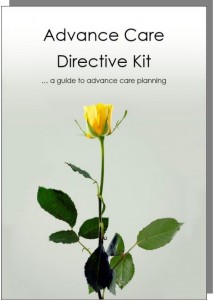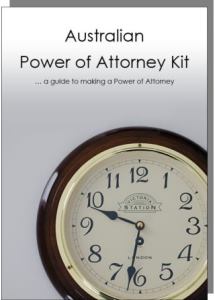Why do I need a will?
No-one lives forever and it’s inevitable that there will come a time when our assets, however large or small, will need to be distributed. One of the things I mention to all my couples when we first meet is that writing a will and updating it periodically should be something we should all consider doing. Why? Well, there are two key reasons:
- Marriage or divorce will invalidate any previous wills unless your latest will clearly shows you were planning to marry when you made it.
- If you die intestate i.e. without having written a will, the State Trustee will be appointed to take on the task of distributing your assets. It’s likely that you’d prefer to protect your assets and pass them on to your chosen beneficiaries rather than have a government department take on this role.
Whether you own property, shares, a business, one or more motor vehicles or other assets or investments, they or the proceeds from their sale should all be distributed according to your directions. When you have a spouse and/or children to consider, it’s even more important that your wishes are taken into account after your death.
So while the timing may seem odd for you to be planning a wedding and preparing or updating your will, it’s all about protecting your assets and your loved ones. Once in place, this document can sit unchanged for years, or you can update it when significant events occur such as the birth of your children, the purchase of more property etc.
Getting married?
 The Happily Ever Before & After brochure is one of the documents which, legally, all authorised marriage celebrants must pass on to each couple before they marry. In this, the subject of making a will is discussed. The brochure states that “It is important that you make a new will when your personal circumstances change. This ensures that you have a valid will that gives effect to your intentions about how you want your assets to be distributed in the event of your death.”
The Happily Ever Before & After brochure is one of the documents which, legally, all authorised marriage celebrants must pass on to each couple before they marry. In this, the subject of making a will is discussed. The brochure states that “It is important that you make a new will when your personal circumstances change. This ensures that you have a valid will that gives effect to your intentions about how you want your assets to be distributed in the event of your death.”
While we all prefer to think of living a long and healthy life, the reality is that we can’t predict the future.
Using the services of a solicitor or writing a will yourself
 Sadly, the exact date and time of our death is not something we know, so, remembering to attend to this important task and updating it when your circumstances change is very important. A solicitor can help you make or change a will or you can prepare one yourself. In doing so, you must ensure that two people over the age of 18 are present to witness your signature.
Sadly, the exact date and time of our death is not something we know, so, remembering to attend to this important task and updating it when your circumstances change is very important. A solicitor can help you make or change a will or you can prepare one yourself. In doing so, you must ensure that two people over the age of 18 are present to witness your signature.
If you plan to write your own will, you can download a legal will kit online or you can write down your intentions and, again, ensure that this document is correctly witnessed.

 At the same time, you may also like to add a Power of Attorney, Legal Guardianship and Advanced Care Directive so that your affairs will be attended to by someone of your choice should you be unable to do so yourself.
At the same time, you may also like to add a Power of Attorney, Legal Guardianship and Advanced Care Directive so that your affairs will be attended to by someone of your choice should you be unable to do so yourself.
In each case, it is suggested that you leave a copy of these important documents with a trusted person, say, your solicitor or a family member. Alternatively, you should let someone know where a copy of these documents can be located if/when they are required at some stage in the future.
State Trustee & Guardian
When someone dies, an executor is appointed by the will to administer the estate. This, oftentimes, is a relative. Their task is to ensure that debts are paid from the estate and assets are distributed according to the directions of the will.
The alternative to arranging your own executor or executors is to appoint your State Trustee & Guardian as an independent and professional executor. They will then take on the task of managing your assets and carrying out your directions on your behalf when you pass away. You’ll be able to find out more by heading over here. Naturally, there is a fee involved for this service. You may also like to consider offering a financial incentive to any executor or executors you appoint, depending on your personal situation and the complexity of your estate.
~ ~ ~
In summary, planning to distribute your assets via a legal will is key. It provides peace of mind that your affairs will be attended to in the manner you have chosen and will, hopefully, save any family issues down the line with regard to inheritance.

084 ~ © Lindy Cooke Celebrant
